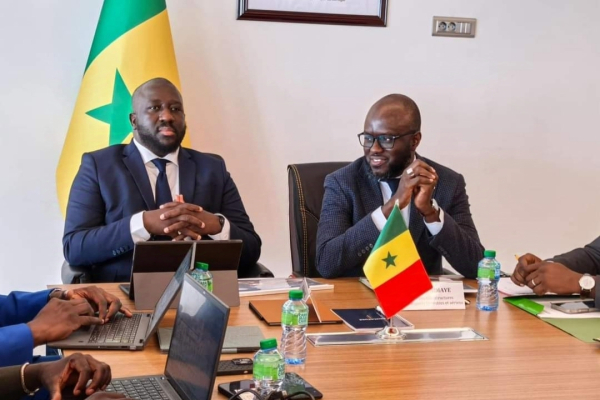As cities continue to grow at a rapid pace, smart mobility solutions are emerging as crucial tools to improve traffic safety and efficiency. These interconnected systems optimize road networks and help address the challenges posed by urbanization.
Dakar’s roadways are set to receive a smart, connected transportation system developed by Huawei, as part of a partnership between Senegal and China. The innovative system was presented on Wednesday, November 6, by the Chinese tech firm to members of the Senegalese government.
“This nationwide project, with a significant digital component, exemplifies the need for coordinated digital initiatives by the State of Senegal. This collaborative approach is part of a broader effort to foster unified digital governance,” said Alioune Sall, Senegal’s Minister of Communication, Telecommunications, and Digital Economy.
The project will equip Dakar with smart technologies aimed at optimizing traffic flow and enhancing road safety. Key elements include a video surveillance system to detect and penalize traffic violations; variable message signs (VMS) to provide real-time information to drivers; and an advanced urban control center to monitor traffic. Additionally, checkpoints will be installed to identify speeding and other risky behaviors, contributing to safer and smoother traffic management in the capital.
This initiative aligns with Senegal’s vision for secure infrastructure and the development of smart, safe cities, as outlined in the "Senegal 2050" National Transformation Agenda.
Dakar, with a population of over 4 million, according to the 2023 national census, faces growing transport challenges, including congestion, pollution, and road safety concerns. A study by the Executive Council of Urban Transport in Dakar (CETUD), shared by its Director General Thierno Birahim Aw, highlights that these issues lead to economic losses of nearly 900 billion CFA francs ($1.4 billion) annually, around 6% of Senegal’s GDP.
Once deployed, the new smart transport system is expected to significantly improve traffic safety and management. Real-time video monitoring will detect traffic violations, increase penalty revenues, and promote better discipline among road users. In case of incidents, the high-tech control center will enable swift intervention and better coordination with emergency services, bolstering response times and overall traffic efficiency.
Samira Njoya



















